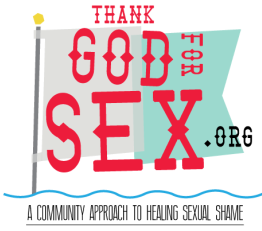 by Daniel Tidwell What I think should be quite clear is this: I see the Bible as very important for the church. I also see the church as far more important than the Bible. It is a document of and for the church. If you are not a part of the Christian faith and/or you do not hold the Bible as important, then this discussion may not be for you. To start reading from the beginning of the series, click here.
words before words: What I think should be quite clear is this: I see the Bible as very important for the church. I also see the church as far more important than the Bible. It is a document of and for the church. If you are not a part of the Christian faith and/or you do not hold the Bible as important, then this discussion may not be for you. However, because the USAmerican socio-political landscape is interwoven with people and structures for whom the Bible is important, it is likely that how the Church is reading the Bible is important to society at large. For this reason, I ask those who do not care about the Bible to allow space for this conversation to take place. While it may be irrelevant to you, it is relevant to many, and we share this planet and the public sphere, so a reasonable, thoughtful, generative conversation about this text that is sacred to many, is of great importance to the public good. If you do believe that the Bible is important, then this conversation is especially critical, because if this text does have some normative authority for your understanding of the life of the church, your personal life, your spirituality, your ethics, your practice of how to engage the world, then there can be no more important task than critically, faithfully, prayerfully, and communally engaging with how it is that you read this text and, far more importantly, how you listen to the Spirit of God and seek to follow the way of Jesus in relationship to the rest of the human community and the world. ———– In my life, I have grown up in the church. Due to the tradition that I was raised in, I was a part of rigorous programs as a child and teenager, wherein I memorized chapters and books of the New Testament. That’s right. Books. I am extremely familiar with the Bible. This might even be an understatement. I was also raised by my parents to think critically about how to read and apply the Bible to my life. I was encouraged, within the Pentecostal tradition of Christianity, to pay close attention to the voice of the Holy Spirit speaking through scriptures, through other people in the church, and directly into my own life. I have been privileged to have access to 8 years of theological education. I have learned enough Greek to question most people who use Greek in their sermons. I have learned enough Hebrew to respect that it is a capacious and poetic language that plays and puns its way through meaning making within (inter)cultural contexts. As much as I have wrestled with it, I love the Bible. It is literarily remarkable, ethnographically and historically important,and for myself and billions of others throughout time, an essential con-text through which we have understood our spiritual experiences with the Trinitarian God of Christianity revealed in the person of Jesus within the context of the church. That said, I have not really found it necessary to articulate how it is that I read the Bible in the midst of affirming both my Christian faith and my personal experience and identification as a gay man. I simply read the bible as a part of my practice of the Christian faith within my church community and as a crucial part of my vocational discipline. I read the Bible carefully, critically, spiritually, theologically, with other people, in conversation with the traditional interpretive methods of the Christian church, ranging from pre-modern to post-modern with an emphasis on the early church and post-colonial reading methods. I read but don’t emphasize the modern protestant readings because I’ve got those pretty solidly internalized at this point and I’m working to listen to as many parts of the Christian community as I can. And yet, I now find that I am being asked in many places to name this internal work for others who are wrestling with how to think about homosexuality, Christianity, and the Biblical texts. ———– And so, I begin with confession. I will name the way that I read the Bible. It is my hope that those who are asking me to discuss homosexuality and the Bible will join me in honest confession about how they are trying to read the text as well. I believe that this confession will lead us to repent—to turn toward one another–with humility and open hearts to listen and engage deeply. In my understanding, the Bible is a collection of theological texts. It is also mostly narratives. It is also mostly poetry. These texts are carefully and thoughtfully constructed by a variety of writers from a number of cultures utilizing the literary forms of their times to tell the stories of peoples’ particular and collective experiences with God. In the sense that the writer of Luke-Acts describes about those texts, I think this is true of the entire Biblical collection of writings, they are attempts to bear witness to the truth about humans’ real experiences with God. Some of these texts present the norms of belief and practice of a given community. Others present exceptional stories for the purpose of challenging, re-interpreting, or countering those norms. Like the church today, ancient communities of people were diverse, there were varying worship practices in different places and times. Sometimes there were significant differences in the same places and times. The biblical texts reveal the collective wisdom of many communities who have retained the diversity of these narratives and their different ways of speaking of God’s relationship with humanity. The way I read the Bible, the author-ity of these texts is derived from the presence of God with the people of God as told in the narratives of the texts, and the presence of God with the people of God in the reading of these texts.There is nothing holy about the collection of words—the words point to what is holy—the Triune God who is revealed in the person of Jesus and in the presence of God as witnessed by the Jewish people and the early Christian church. Any elevation of the text to the same authority of the God to whom it testifies as living and present in the world across communities and cultures throughout time is, precisely, idolatry. The way I read it, any normative function that the text has in teaching us what it means to be human, to worship God, or live in the way of Jesus, must be understood by moving back and forth between particular passages and the whole of what the collected texts of the Bible claim about who and how God is in relationship with humanity. We do not get anywhere useful by elevating or neglecting particular texts–instead, we read them only within the fabric of the whole. That said, I contradict myself (“so I contradict myself”). I read the texts that testify to the person of Jesus and the texts that testify to theophanies (moments of God showing up in tangible presence) as far more important than the rest of the text. For this reason, I hold to the Augustinian hermenuetic of always choosing the reading of a text that increases my love of God and neighbor–because this is how Jesus described the heart of all the law and the prophets, so that seems important enough for me to pay attention to. And in all this, I try to listen to how these texts have been read by the many communities of the global church throughout time—that is to say, I believe that we do not read the Bible as an instruction manual for life, we read it theologically, in community with the church, with humility and critical engagement, and mostly, with openness to listen to what the living Spirit of God is saying to the church. And part of listening to God’s Spirit speaking to the church is to listen for the prophetic voice that calls out from unexpected places, scandalizing our notions of worship and right living in order to call us to love the poor, the outcast, and the oppressed. To any part of the moral demands of scripture without reading the prophets is the greatest failure possible. The ancient communities found it essential to retain and canonize these texts that contradict and scandalize legalistic worship in the name of practicing repentance of communal participation in oppression and return to right relationship with God through radical hospitality. ———– So, at the end of the day, I am boringly orthodox in how I read the Bible, and I am also deeply passionate about how I read the Bible. My hope is that I can sit with folks in real conversation about sexuality and desire. My hope is to hear their confessions of how they read the biblical texts. My hope is that we’ll let the texts be what they are and learn how to talk and eat and dance together with the living God who calls us into life. Originally posted on Daniel's website.
0 Comments
Leave a Reply. |
Categories
All
Archives
October 2016
|

 RSS Feed
RSS Feed